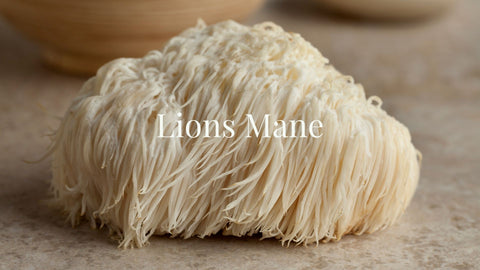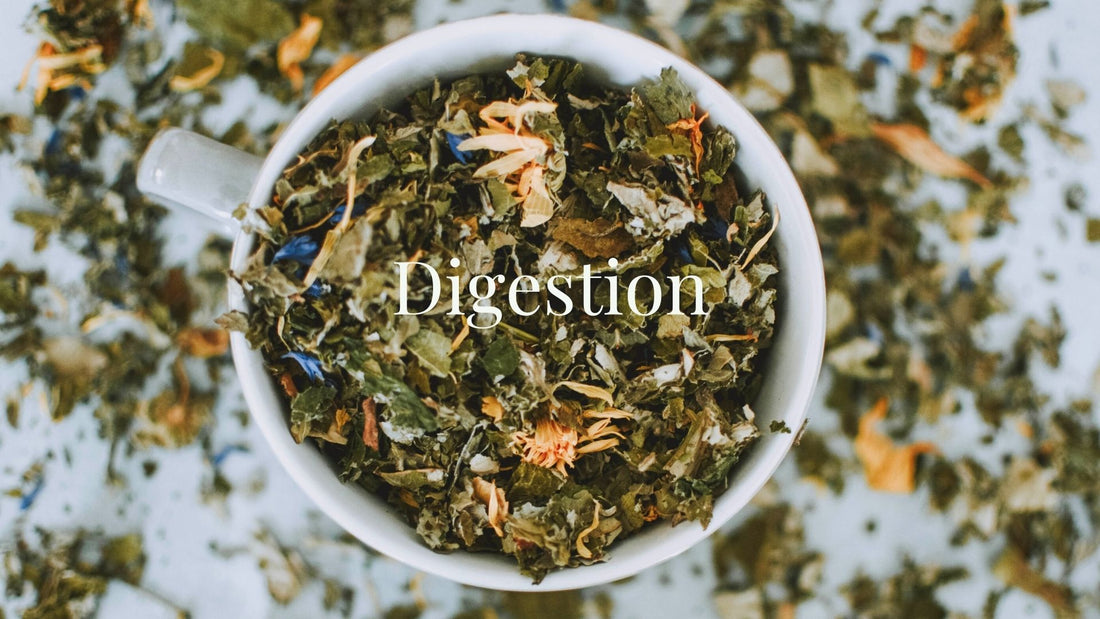Maintaining a healthy gut is the key! Key to energy, skin, brain function, immunity and it's key to overall health. In this blog post we'll go over tips to improve digestion and gut health.
The digestive system is a complex system involving many organs in the body, and the actual digestion starts in the mouth. When you chew, the food gets broken down into smaller particles with the help of saliva. Then the food reaches the stomach and gets digested with help of digestive secretions to get absorbed by the intestine.
It could be this simple but studies show that 15% to 30 % of the world population suffers from gut problems such as indigestion, bloating, irritable bowel syndrome and much more.Causes of bloating
People with poor digestion may feel bloated a few hours after their meal. One of the reasons why bloating can occur can be due to swallowing air while eating or having gassy drinks. This air then gets trapped and disrupts your digestive system.

Another reason for bloating is the body taking longer than usual to break down and digest the food. In this case, the food gets broken down with the help of bile juice but it sits in your gut and gas is being produced as the food decays, this gas builds up and causes bloating. The quicker the food gets through your intestine, the less likely you'll have any issues.
People who do not consume enough fibre often suffer from bloating and indigestion. Therefore consuming fibre rich food helps.
How to prevent indigestion?
1. Chew your food
Chewing is the first step of digestion. When you chew the food is broken down into smaller particles and is mixed with the enzymes in saliva to start the digestive process. It's recommended that the food needs to be chewed around 32 times for easier digestion, better nutrient absorption and even weight loss. If the food is not chewed properly, it can lead to indigestion and other gastrointestinal problems.
2. Keep yourself hydrated
Water is essential for overall health and especially for the digestive process. The more water you consume, the easier the digestion; your body needs adequate water to push out the waste from your body. Eating fruits and smoothies can speed up your digestion and make the process simpler. Drinking lemon infused water in the morning as soon you wake up can help avoid indigestion and other digestive related problems.
3. Maintain a proper diet plan
Bloating and indigestion can be triggered by the foods you eat. Use the elimination method to see what foods you react negatively too and reduce those from your diet. You can reintroduce them later once the gut is in a better position. Some foods, such as grains, can be harder to break down for some people, so those foods need to be properly soaked and cooked to make digestion easier.
The digestive period differs from food to food; fruits take a quicker time to digest-whereas fat takes a longer time. Therefore if you suffer from bloating already, you need to be extra cautious while making your meal plan for the week.
4. Include probiotics
You can include Probiotics such as Kimchi, kombucha, sauerkraut, and kefir in your diet to prevent bloating and aid in better digestion. Probiotics contain beneficial bacteria that feed on the fibre you intake, and it also helps maintain your gut health.
Always remember that your stress levels can easily disrupt your digestive process. Also, poor quality of sleep can cause digestive irregularities. Therefore follow the best lifestyle regime to improve your gut health.
Now, let's take a look at the best herbs to aid your digestive issues
Herbs mentioned in this article come under either carminative or bitter categories. The bitter herbs need to be taken before meals to trigger digestive secretions and quicker digestion. Whereas carminative herbs can help relax the abdominal muscles and reduce bloating and cramping.
1. Lion’s Mane

Lion’s Mane is a medicinal mushroom that contains beneficial elements to promote good gut bacterial growth. It is also an anti-inflammatory herb that helps treat the inflammation in the digestive tract.
Frequent bloating and other digestion issues can lead to inflammation in your digestive tract. Moreover, people who suffer from constipation often suffer from gut inflammation and cramping. This herb helps regenerate cells in the gut as a healing mechanism by treating inflammations. It also prevents leaky guts that cause the waste and bacteria to enter the bloodstream causing health complications.
2. Chamomile

Sleep deprivation can cause gut-related problems, and Chamomile can help treat sleep disorders. Chamomile tea helps to achieve good quality sleep. Since gut health is linked with sleep abnormalities, drinking chamomile tea in the evening can provide a calming effect on the gut and promotes gut health.
3. Slippery elm

Slippery elm is the best digestive aid to treat digestive issues like constipation, gut inflammation and diarrhoea. Studies prove that people with irritable bowel syndrome who consume this herb could see a 13% reduction in symptoms such as abdominal cramps, bloating and more. Moreover, this herb act as a calmative agent; that can heal the stomach linings and the intestinal walls. It also improves the good bacterial growth in the gut by maintaining a healthy gut microbiome.
4. Turmeric

Turmeric is one of the best carminative herbs to soothe your digestive system. It helps treat indigestion, bloating and other digestion related problems. According to a study, people who intake turmeric twice a day are likely to recover from indigestion quicker.
REFERENCES
https://www.womenshealthmag.com/weight-loss/a19896055/bloating-myths/
https://theconversation.com/health-check-what-causes-bloating-69616
https://www.healthline.com/health/abdominal-bloating
https://www.webmd.com/digestive-disorders/qa/how-can-water-affect-your-digestion
https://www.healthline.com/nutrition/food-combining#TOC_TITLE_HDR_3
https://my.clevelandclinic.org/health/articles/14598-probiotics
https://hifasdaterra.co.uk/blog/beat-the-bloat-10-ways-to-avoid-stomach-bloating/
https://www.holistictherapistmagazine.com/your-gut-and-lions-mane-a-match-made-in-heaven/
https://www.nectarherbandtea.com/digestive-health-carminatives/
https://rishmawalji.com/minimize-gas-and-bloating/
https://selfhacked.com/blog/slippery-elm/
https://learn.freshcap.com/tips/best-supplements-leaky-gut/
https://www.healthline.com/health/food-nutrition/slippery-elm-bark#Safety-of-Slippery-Elm-Bark
https://selfhacked.com/blog/slippery-elm/

